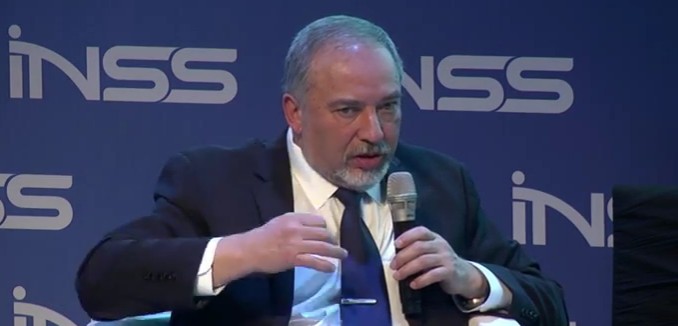During a tour of Israel’s northern border on Wednesday, Israeli Defense Minister Avigdor Liberman said Israel will not allow Syria “to be turned into a front-line position” for Iranian militias against Israel.
Liberman was accompanied by senior officers from the IDF General Staff and met senior commanders and soldiers. Liberman said: “The IDF is well-prepared and ready for any scenario. We maintain absolute freedom of action, and the only considerations guiding us are the State of Israel’s security considerations, including with respect to Iran. We simply will not allow a Shi’ite entrenchment and an Iranian entrenchment in Syria. We retain absolute freedom of action.”
He was speaking a day after Russian Foreign Minister Sergei Lavrov said the Iranian-backed militias were in Syria “at the invitation of the government” and therefore “legitimate”. Iran is concerned by the new ceasefire agreement in southern Syrian that calls for the withdrawal of foreign forces and the creation a buffer zone between Sunni rebels and pro-regime Shi’ite militias backed by Iran.
Israeli analyst Ehud Yaari told Channel 2 News that the division of responsibility between pro-regime forces in Syria is that Russia is in charge, but only operates in the air so needs the Iranians and their proxy Shiite militias to provide forces on the ground.
On Wednesday, officials from the United States National Security Council arrived in Israel for talks with their Israeli colleagues. The newly-appointed Israeli National Security Advisor, Meir Ben-Shabbat, is in Washington today to meet with his U.S. counterpart, General H.R. McMaster.
The U.S. Embassy in Israel issued a statement about the NSC visit to Israel and said, “Our strategic relationship with Israel is of paramount importance, and American delegations visit Israel regularly for coordination on various topics. During the current visit, official American representatives will meet their Israeli counterparts to discuss regional security matters, including Syria.”
On Thursday, the United Nations Security Council will vote on whether to renew the mandate of the Joint Investigative Mechanism (JIM), set up to inspect the use of chemical weapons in Syria. Russia is expected to veto the U.S.-backed resolution.
(via BICOM)
[Photo: INSS ISRAEL / YouTube]




